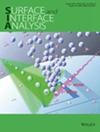Tribochemistry effect on the friction reduction of Al2O3/ethylene glycol composite lubricant between steel self‐mated tribosystem
IF 1.8
4区 化学
Q4 CHEMISTRY, PHYSICAL
引用次数: 0
Abstract
In our previous work, we find that the ethylene glycol (EG) is transferred to amorphous carbon or graphene during sliding under the effect of the tribochemical reactions; herein, in this work, we control the concentration of the modified Al 2 O 3 nanoparticles in the EG solution in order to modulate the tribological properties of the tribosystem sliding in the mixed lubricant consisting of the modified Al 2 O 3 nanoparticles and EG. The tribological tests show that the concentrations of the modified Al 2 O 3 nanoparticles ranging from 0 to 1.0 wt% in the mixed lubricant are helpful for obtaining low wear rate due to the formation of graphene‐like materials induced by tribochemical reactions. On the other hand, when the concentration reaches 1.5 wt.%, the tribosystem exhibits high coefficient of friction (COF) and wear rate, which is attributed to the formation of reunited groups consisting of the modified Al 2 O 3 nanoparticles and graphene‐like materials. This investigation should give a positive guidance for the design of the mixed lubricant with excellent lubrication properties.摩擦化学对Al2O3/乙二醇复合润滑剂钢间摩擦减量的影响
在我们之前的工作中,我们发现在摩擦化学反应的作用下,乙二醇(EG)在滑动过程中转移到无定形碳或石墨烯;在本研究中,我们通过控制改性氧化铝纳米颗粒在EG溶液中的浓度,来调节由改性氧化铝纳米颗粒和EG组成的混合润滑剂中摩擦系统滑动的摩擦学性能。摩擦学试验表明,在混合润滑油中加入浓度为0 ~ 1.0 wt%的改性al2o3纳米颗粒有助于获得较低的磨损率,这是由于摩擦化学反应引起的类石墨烯材料的形成。另一方面,当浓度达到1.5 wt.%时,摩擦系统表现出较高的摩擦系数(COF)和磨损率,这是由于由改性的al2o3纳米颗粒和石墨烯样材料组成的团聚基团的形成。研究结果对设计具有优良润滑性能的混合润滑剂具有积极的指导意义。
本文章由计算机程序翻译,如有差异,请以英文原文为准。
求助全文
约1分钟内获得全文
求助全文
来源期刊

Surface and Interface Analysis
化学-物理化学
CiteScore
3.30
自引率
5.90%
发文量
130
审稿时长
4.4 months
期刊介绍:
Surface and Interface Analysis is devoted to the publication of papers dealing with the development and application of techniques for the characterization of surfaces, interfaces and thin films. Papers dealing with standardization and quantification are particularly welcome, and also those which deal with the application of these techniques to industrial problems. Papers dealing with the purely theoretical aspects of the technique will also be considered. Review articles will be published; prior consultation with one of the Editors is advised in these cases. Papers must clearly be of scientific value in the field and will be submitted to two independent referees. Contributions must be in English and must not have been published elsewhere, and authors must agree not to communicate the same material for publication to any other journal. Authors are invited to submit their papers for publication to John Watts (UK only), Jose Sanz (Rest of Europe), John T. Grant (all non-European countries, except Japan) or R. Shimizu (Japan only).
 求助内容:
求助内容: 应助结果提醒方式:
应助结果提醒方式:


